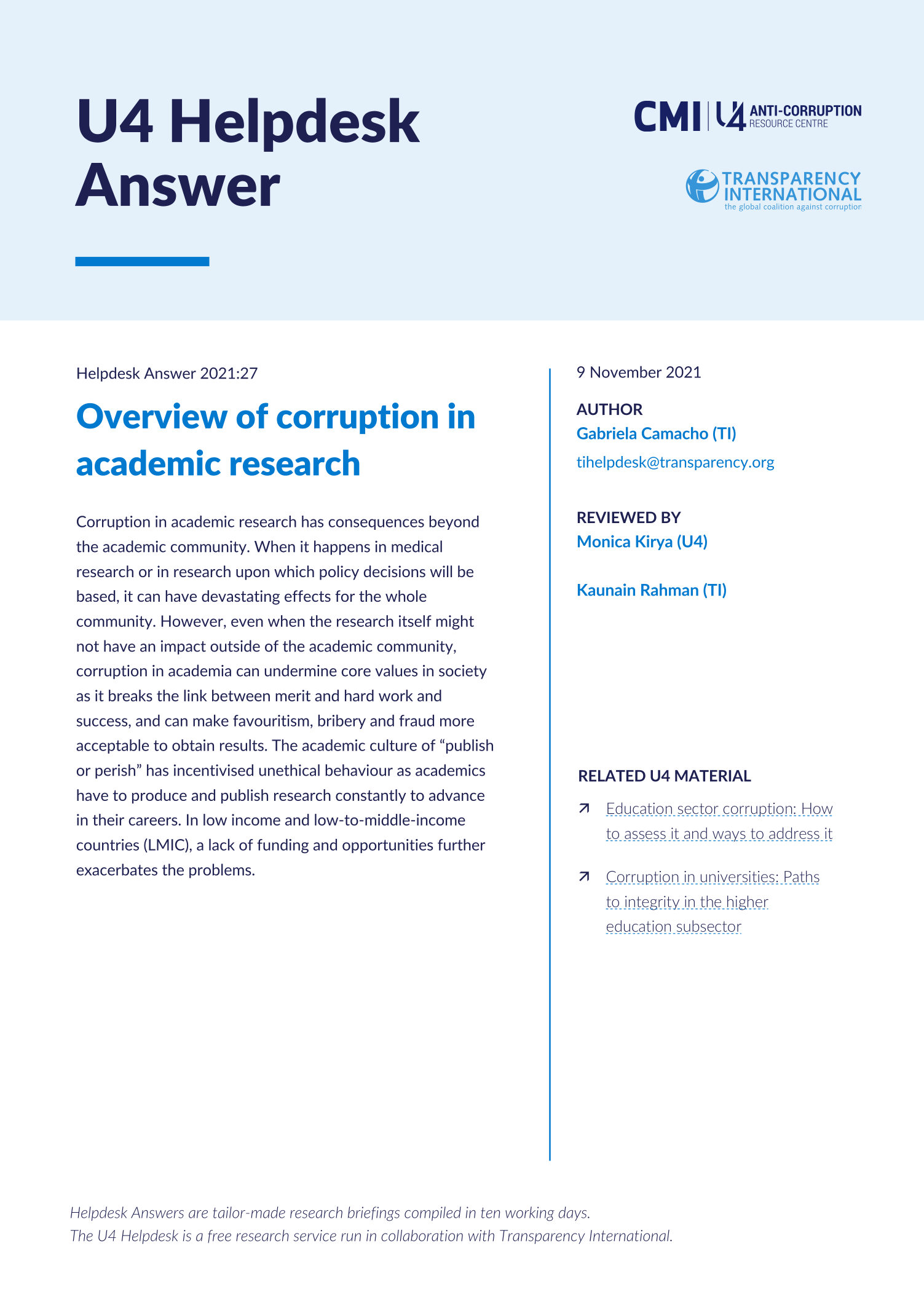Main points
- Misconduct can happen at all different stages of research. Favouritism or bribery can determine grant winners or PhD admissions; ghost-writers can be hired by faculty and students alike; data can be falsified to support an expected hypothesis.
- The research environment and the “publish or perish” academic culture can incentivise misconduct in academic research as faculties need to publish new and valuable research constantly.
- Academia is not impervious to more “mundane” types of corruption, and embezzlement and fraud are common risks particularly when academic autonomy becomes synonymous with a lack of oversight and control.
- Low income and LMIC countries confront a particular set of challenges, as a lack of funding and specific barriers can create more incentives for unethical behaviour.


